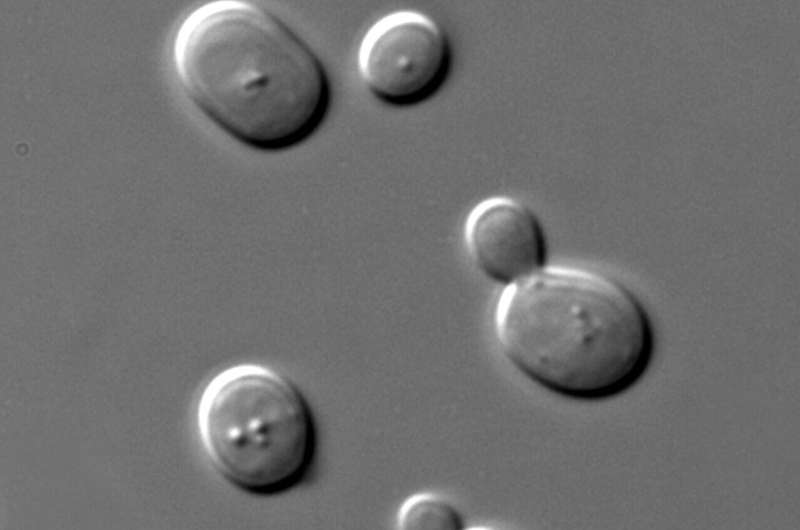In a paper published today, researchers from the Randall Centre for Cell & Molecular Biophysics and The Crick use an evolutionary cell biolo
In a paper published today, researchers from the Randall Centre for Cell & Molecular Biophysics and The Crick use an evolutionary cell biology approach in two related fission yeasts, one that acquires energy by respiration and one that doesn’t, to find the critical points at which respiration feeds into central carbon metabolism.
Most eukaryotes—like animals, fungi or plants—live in environments with lots of oxygen, and respire. Yet, rapidly growing human cancer cells and single cell organisms, such as yeasts, often choose glycolysis over respiration, even when oxygen is available. We know little about the metabolic rewiring required to cope with the lack of respiration.
The authors of the new paper, published in Current Biology, show how both ATP production and NAD regeneration can be optimized to ensure rapid growth without respiration, and discuss possible trade-offs of choosing between respiration and glycolysis. +
The researchers are convinced that understanding the plasticity of metabolism may ultimately aid in explaining organismal ecology and the evolution of higher-level cellular features, such cell size and growth rate. The principles uncovered in this study can be potentially generalized to the reprogramming of energy metabolism in human aging and disease, and point out new ways to improving microbial performance in biotechnological applications.
Fonte: Phys.org

